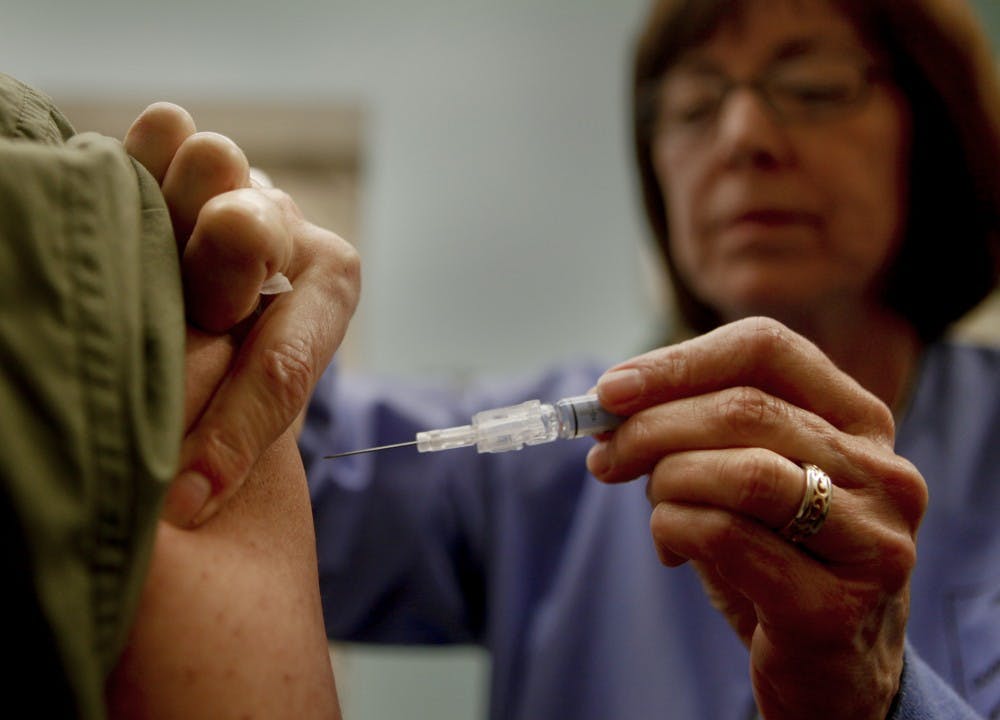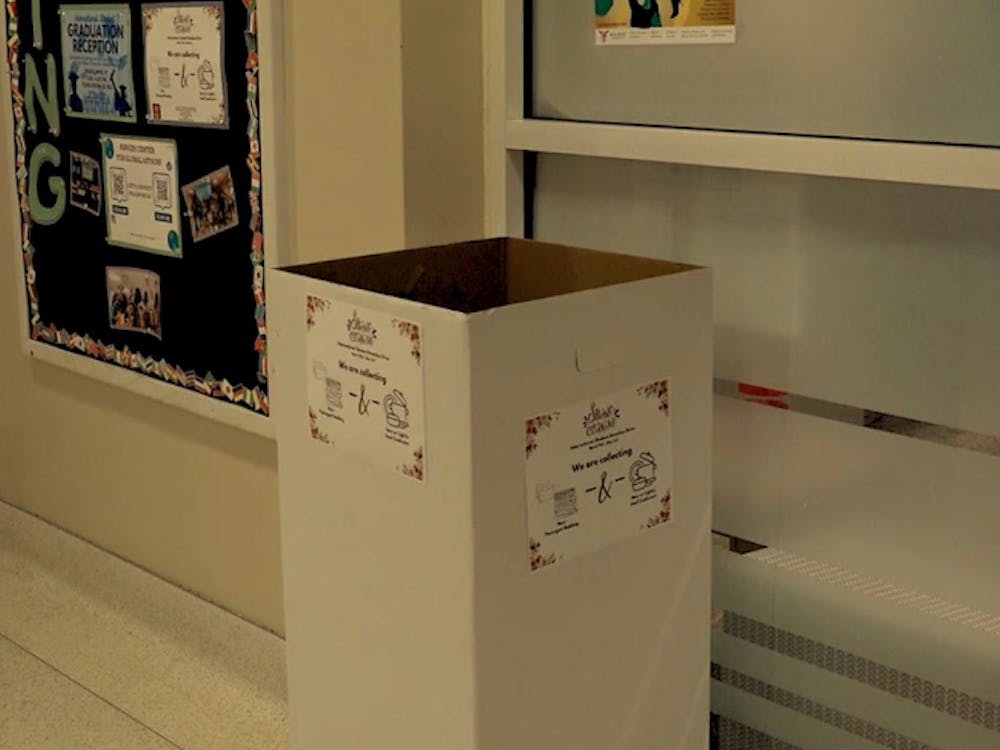Flu Facts:
• Flu season is from October to May
• The vaccine takes two weeks to take effect
• Most flu vaccines protect against the H1NI, H3N2 and influenza B viruses.
• Shots are manufactured by growing the flu virus in eggs
• Higher dose vaccines are given to people 65 and older.
• Everyone 6 months and older is recommended to get a flu shot
Source: cdc.gov
It’s flu season again.
Last year’s flu epidemic filled up beds at IU Health Ball Memorial Hospital, but students say they still aren’t getting the flu vaccine.
The Ball State University Student Health Center offers flu shots to students daily from 8-11 a.m. and from 1-4:30 p.m., by appointment or walk-in. Students are encouraged to get vaccinated to prevent the flu from spreading.
Around 40 percent of adults got the flu vaccine in 2012-13, according to the Centers for Disease Control.
Sophomore nursing major Ashley Criswell said she usually doesn’t get vaccinated for the flu, but is planning on doing it this year because she is required to for her major. Criswell said students may resist getting flu shots because of their age.
“We hear flu prevention for the very young and the very old, but never really anything for our age, which is kind of a bad deal," Criswell said. "It’s spread so easily on campus. A lot of people think they’ll never get that sick, so I resisted getting one. But I can’t resist anymore because I have clinicals in the spring."
Some students refuse the vaccine because it makes them sick. Rachel Selke, a sophomore art education major, said her encounter with the flu vaccine was not a good one.
“Apparently, I have the rare thing [that] when I get a flu shot, I get the actual, full-blown flu," she said. "It’s the only time I ever got the flu in my life, so I’m not going to be getting it again."
However, Selke said she may think differently when she’s teaching children.
Kelsey Moore, a nurse practitioner at American Health Network in Muncie, said unless patients are allergic to the vaccine, the vaccine won’t make them sick. She recommends her patients get vaccinated.
“When you get the flu vaccine, it does lower your immune system at first while it begins to work, so therefore if [you] were starting to get sick anyways it does make the symptoms more noticeable," Moore said. "I will have patients say, 'Well I did have a runny nose when I got the vaccine before.' Then it is not the flu vaccine that caused you to be ill."
Preventative measures can ward off the flu, and Deidre Dorman, health center director, said good hand hygiene and properly covering a cough are instrumental in prevention.
Research conducted by Xu Lu from the University of Findlay in Ohio found college students may not be washing their hands properly. Once students were instructed with hand washing protocol from CDC, hand hygiene significantly improved, according to the American Journal of Infection Control.
The CDC recommends hand washing before, during and after preparing food, eating food, caring for someone who is sick, after using the toilet, changing diapers, blowing your nose, coughing or sneezing, touching an animal, animal waste or animal food or touching garbage, according to cdc.gov.
Covering coughs and sneezes and good hand hygiene helps, but the flu vaccine is best, Dorman said.
But even so, students still don’t plan on getting their vaccine this year.
“No, I’m not getting this year,” said Dakota Clark, a sophomore telecommunications major. “I don’t know why not. I guess I just don’t care.”
|
Flu Facts: • Flu season is from October to May • The vaccine takes two weeks to take effect • Most flu vaccines protect against the H1NI, H3N2 and influenza B viruses. • Shots are manufactured by growing the flu virus in eggs • Higher dose vaccines are given to people 65 and older. • Everyone 6 months and older is recommended to get a flu shot Source: cdc.gov |





